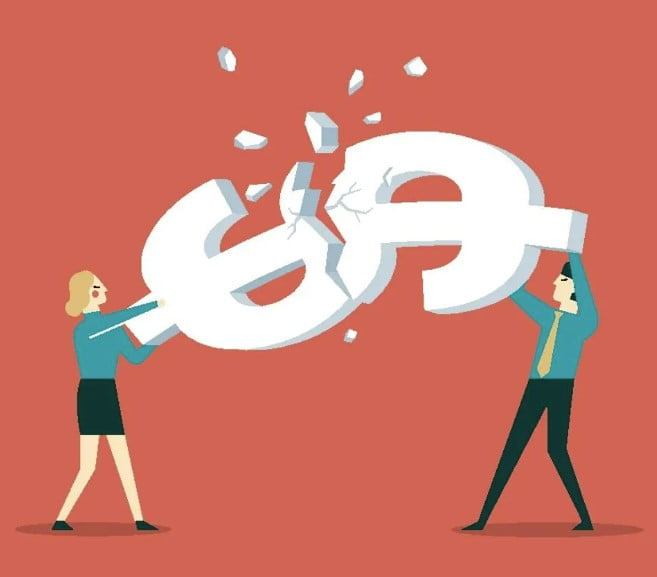
Small Banks’ Loss Is Fintech’s Gain As New Small Businesses Pivot
Small businesses are the backbone of the economy, creating jobs and driving innovation. However, without access to capital, many small businesses struggle to get off the ground or expand. Traditionally, small banks have been the go-to source for small business loans, but in recent years, they have faced increasing challenges that have left many small businesses seeking alternative solutions.
The rise of FinTech has been a game-changer for small businesses, providing access to innovative lending solutions that were previously unavailable. As small banks struggle to keep up with changing technology and regulations, FinTech companies have stepped in to fill the gap, offering faster, more flexible, and more convenient lending options. In this article, we will explore the challenges facing small banks, the rise of FinTech, and how small businesses are pivoting to embrace these new solutions.
The Importance of Small Business Lending
Small businesses are struggling to survive, but with the help of small business lending, they can have a fighting chance to thrive. Small businesses are the backbone of the economy, and they play a crucial role in creating new jobs and driving economic growth. However, they often face significant challenges when it comes to accessing the financing they need to grow and expand their operations.
This is where small business lending comes in. Small banks have traditionally been the main providers of these loans, but in recent years, fintech companies have emerged as important players in the space. By leveraging technology and data analytics, fintech firms are able to provide faster, more efficient, and more personalized lending solutions to small businesses. This is particularly important in today’s fast-paced business environment, where speed and agility are key to success.
Challenges Facing Small Banks
Despite the obstacles they face, community financial institutions must continue to adapt in order to remain relevant and competitive in today’s rapidly evolving financial landscape. One of the biggest challenges facing small banks is the high cost of compliance with regulatory requirements. These requirements are often more burdensome for small banks than for larger banks due to their limited resources and economies of scale. As a result, many small banks struggle to keep up with changing regulations and are at risk of being fined or penalized for non-compliance.
Another challenge facing small banks is the rise of fintech companies. These companies are able to offer faster and cheaper financial services to small businesses, making it difficult for small banks to compete. Fintech companies are also able to leverage technology to offer more personalized and efficient services, which is something that small banks may not be able to match. As a result, small banks are losing market share to fintech companies, which are better able to serve the needs of small businesses in today’s digital age.
The Rise of FinTech
You may have noticed how quickly fintech has risen in the financial industry, offering faster and cheaper services to customers. This shift has been particularly noticeable in the small business sector, where traditional small banks have struggled to keep up with the demands of entrepreneurs. Fintech companies have stepped in to fill the gap, offering innovative solutions that cater to the unique needs of small businesses.
One of the main advantages of fintech is the speed and convenience it offers. Small businesses can access financing and other financial services quickly and easily, without having to go through the lengthy and cumbersome processes of traditional banking. Fintech companies also provide a range of services beyond financing, including accounting, payment processing, and financial management tools. As a result, small businesses are increasingly turning to fintech as a one-stop-shop for all their financial needs.
Small Business Pivot to FinTech
With the rapid growth of fintech, it’s no surprise that small businesses are shifting towards these innovative solutions for their financial needs. The pandemic has accelerated this trend as many small banks struggled to keep up with the demand for loans and other financial services. In contrast, fintech companies were able to quickly adapt to the changing circumstances and provide digital solutions that cater to the needs of small businesses.
Fintech companies offer a range of services such as online lending, digital payments, and automated accounting that are especially attractive to small businesses. These services are often faster, more convenient, and less expensive than traditional banking services, making them an ideal choice for entrepreneurs looking to save time and money. As small businesses continue to pivot towards fintech, we can expect to see more innovation and disruption in the financial industry.
The Future of Small Business Lending
Looking ahead, it is important to consider the potential impact of emerging technologies on the lending landscape for small businesses. Fintech companies have already disrupted the traditional lending industry, offering faster and more accessible loan options to small businesses. This trend is likely to continue, with more small businesses turning to fintech for their financing needs.
One of the advantages of fintech lending is the speed at which loans can be processed and approved. Traditional banks often have lengthy application processes that can take weeks or even months to complete. Fintech lenders, on the other hand, can process applications quickly and provide funding within days. This is particularly important for small businesses that may need capital to seize time-sensitive opportunities or to cover unexpected expenses. As technology continues to improve, we can expect even faster and more efficient lending processes, making fintech an increasingly attractive option for small businesses.
Frequently Asked Questions
What is the current state of small business lending in the United States?
Small business lending in the United States has been challenging due to the pandemic, but fintech companies have stepped up to fill the gap left by small banks.
How does the use of traditional banking services compare to the use of FinTech platforms for small businesses?
Fintech platforms are increasingly being used by small businesses as an alternative to traditional banking services. This trend is driven by convenience, accessibility, and faster access to funds, making fintech a viable option for small business lending.
What specific challenges do small banks face when it comes to providing lending services to small businesses?
Small banks face challenges in providing lending services to small businesses due to limited resources, outdated technology, and strict regulations. This creates an opportunity for fintech platforms to fill the gap and offer more flexible and efficient solutions.
What role do government policies and regulations play in the small business lending industry?
Government policies and regulations heavily influence the small business lending industry. These guidelines dictate the terms and conditions of loans, which can affect both the lenders and borrowers involved.
What are some potential disadvantages or risks associated with small businesses pivoting to FinTech platforms for lending and financial services?
Potential disadvantages and risks of small businesses pivoting to fintech platforms for lending and financial services include cybersecurity threats, lack of personal relationships with lenders, and potential for hidden fees or unclear terms.
Conclusion
In conclusion, the challenges facing small banks have created an opportunity for fintech companies to step in and provide small business lending solutions. Fintech companies offer faster and more efficient lending processes that cater to the needs of small businesses. As a result, more and more small businesses are turning to fintech for their financing needs, leading to a shift in the lending landscape.
However, this does not necessarily mean the end of small banks. There is still a place for community banks in the lending market, especially for businesses that require a more personalized approach. As the lending industry continues to evolve, it will be interesting to see how both small banks and fintech companies adapt to meet the changing needs of small businesses.


